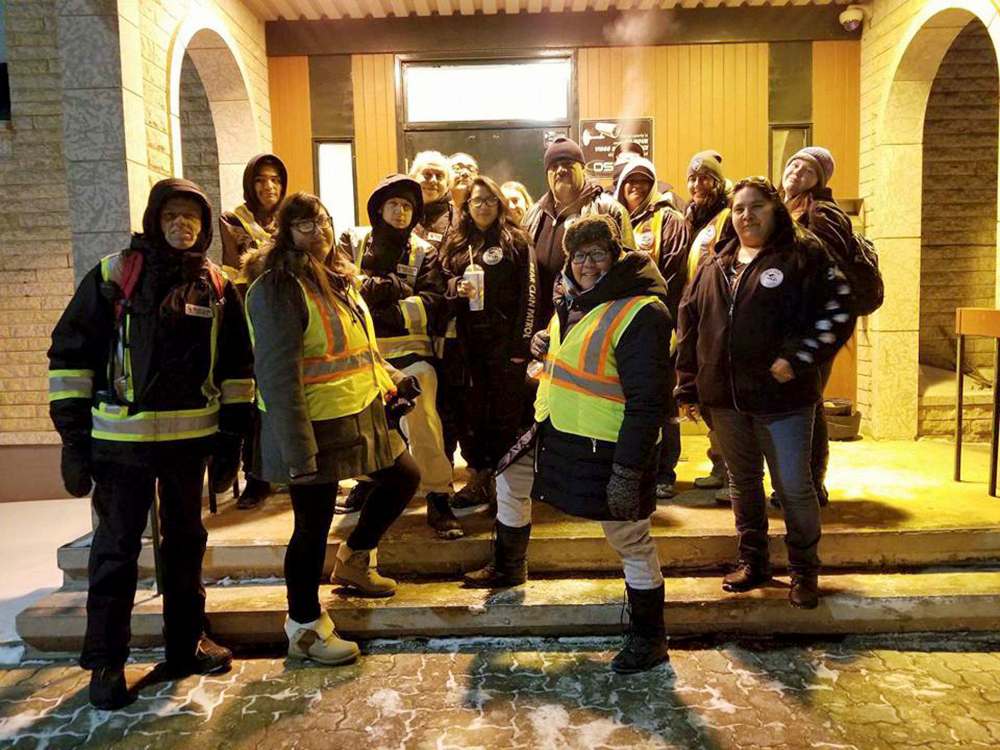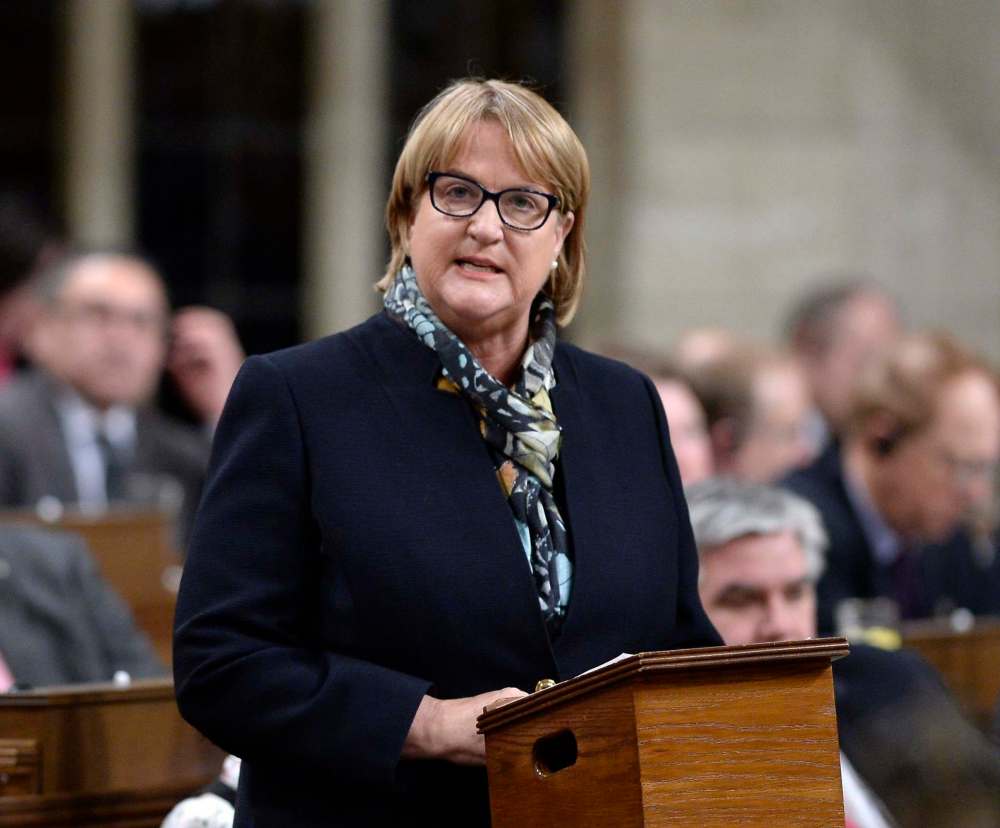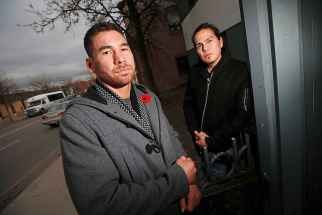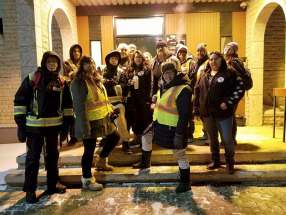Bear Clan’s federal funding in peril, may layoff workers
Read this article for free:
or
Already have an account? Log in here »
To continue reading, please subscribe:
Monthly Digital Subscription
$19 $0 for the first 4 weeks*
- Enjoy unlimited reading on winnipegfreepress.com
- Read the E-Edition, our digital replica newspaper
- Access News Break, our award-winning app
- Play interactive puzzles
*No charge for 4 weeks then billed as $19 every four weeks (new subscribers and qualified returning subscribers only). Cancel anytime.
Read unlimited articles for free today:
or
Already have an account? Log in here »
Hey there, time traveller!
This article was published 06/11/2018 (2144 days ago), so information in it may no longer be current.
OTTAWA — Bear Clan Patrol will be turning to Winnipeggers to help keep the volunteer community safety group afloat, after Ottawa put its request for $100,000 in limbo, the Free Press has learned.
The group is the latest urban Indigenous organization pondering layoffs, after bureaucrats received too many funding applications and put the brakes on most of the cash.
“To tell us that there are too many of you guys doing that work, so we can’t afford to pay anybody — that just doesn’t make any (expletive) sense,” said Bear Clan co-founder James Favel.

Last year, Ottawa gave the North End neighbourhood patrol roughly $100,000. Favel said it helped the organization pay staff, who help with deliveries and co-ordinate the 1,400 volunteers in 40 chapters that have emerged across Canada.
The group figured it was a one-time payment, but Ottawa invited it to apply for more funding in May. An October email told Favel too many groups had applied, so it would take months to learn whether the application was approved.
Donations from local corporations have helped Bear Clan group buy gloves, visibility vests and flashlights, but “we have administrative needs to maintain this machine,” Favel said.
Last year’s money came through the Urban Programming for Indigenous Peoples program. Later in 2017, the government restructured UPIP, reportedly leading to layoffs at Vancouver programs for inner-city youth and shortfalls for after-school programs in Regina.
Ottawa has extended interim funding to some groups affected by the change, but the Bear Clan has no clue whether it will receive such an extension.
Conservative critic Cathy McLeod raised the issue Wednesday in Parliament, saying Indigenous Services Canada “has left them out in the cold.”
The British Columbia MP toured parts of Winnipeg last Thursday with the Bear Clan, and recounted three hours of “heart-wrenching” stories of drugs and abuse, “but also heartwarming expressions of appreciation.”
ISC Minister Jane Philpott wrote Wednesday her staff “are working with partners on long-term funding solutions to help support organizations like the Bear Clan” to support “Indigenous peoples living in cities and the unique realities they face.”
That’s news to Favel, who said the Bear Clan only has funding from donors lined up for the next three months. “My own salary is in jeopardy, and doesn’t exist after January,” he said.
Ottawa’s payment last year took one person off welfare to do administrative work, Favel said, and he’d like to create more such positions.
“People with a purpose, people with access to resources: they don’t visit hospitals as much, they don’t go to prison, they contribute to society,” he said. “I’ve felt, in myself, the paralyzing forces of poverty.”
Favel said the group is about to launch a crowdfunding webpage in order to keep it operating.

ISC wrote it is consulting “on how to best meet the needs of urban Indigenous peoples for 2018-19 and beyond” — but it’s been seven months since that fiscal year started.
Favel said he’s frustrated with the Liberals’ promises of stable funding and advancing reconciliation. “I’m painfully aware of that dichotomy there.”
In the 2016 census, 51.8 per cent of people self-identifying as Indigenous lived in urban areas.
McLeod pointed out the program — founded in 1992 but shuttered years later — was relaunched after the 2014 death of 15-year-old Tina Fontaine, and that the Liberals have promised to act for Indigenous people instead of waiting for results from the National Inquiry into Missing and Murdered Indigenous Women and Girls.
“It just seemed like such a wrong thing not to give them such a small amount,” she said in an interview.
The City of Winnipeg’s transit committee is currently mulling a proposal to waive fares for Bear Clan members to provide patrols on city buses. One of them was stabbed Sunday morning while restraining a man reportedly acting violently.
Bear Clan started its operations out of a youth centre, but finally found its first office space in spring 2018. That building is undergoing asbestos removal, leaving the group working out of a shipping container on Selkirk Avenue for almost three weeks.
dylan.robertson@freepress.mb.ca
History
Updated on Wednesday, November 7, 2018 9:55 PM CST: Fixes typos











